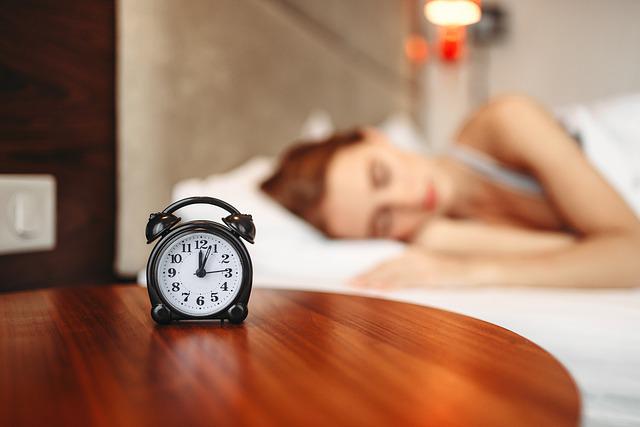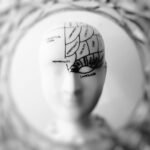
Those who go to bed late and rise late may be more likely to suffer from health issues as a result of their body clock’s disconnection with society’s regular patterns.
However, according to new research, a few simple adjustments might make all the difference for night owls.
The study of sleep late
The study, which was published in the journal Current Biology and conducted by researchers at the University of Surrey in England, found that when night owls followed a timetable designed to mimic the hours of daylight, they displayed improved blood pressure, and cholesterol levels and cognitive function.
Our findings suggest that late risers might benefit from trying to synchronize their body clock with the regular patterns of social life,
Derk-Jan Dijk, a professor at the University of Surrey and the senior author of the new study, in a press release.
Dijk and his colleagues recruited 22 participants for their experiment, 11 of whom were defined as “evening types” and 11 of whom were “morning types.”
The evening types went to bed an average of 3:00 a.m. and woke up at 10:30 a.m., while the morning types went to bed at 11:00 p.m. and woke up at 7:00 a.m.
For the first week of the study, all of the participants kept to their usual sleep schedules.
However, for the second week, the evening types were asked to go to bed two hours earlier than usual and wake up two hours later than usual. The morning types were asked to do the opposite.
The researchers found that when the evening types moved their sleep schedule closer to that of the morning types, they saw improvements in their cholesterol levels, blood pressure and cognitive function.
“Our findings have important implications for the increasing number of people who work irregular hours,” said Dijk in the press release. “It might be possible to improve the health of evening types by helping them to shift their body clock earlier.”
The effect of lack of sleep
Lack of sleep can have a number of negative effects on your body, including:
- Increased risk of obesity and type 2 diabetes
- Higher blood pressure
- Impaired immune function
- Decreased libido
- Moodiness and irritability
- Difficulty concentrating and making decisions
- Increased accidents and errors
- Slow reaction time
- Poor coordination
- Increased risk of depression and anxiety
- Hallucinations
- Memory problems
- Premature aging
- Death
While most people need between 7 and 8 hours of sleep a day, some people may need more or less. If you find that you’re regularly not getting enough sleep, it’s important to talk to your doctor.
They can help you determine if you have a sleep disorder and recommend treatment options.
Symptoms of lack of sleep
Most people know when they haven’t gotten enough sleep. You may be tired, have difficulty concentrating or focusing, or be in a bad mood.
However, there are some other less obvious signs of sleep deprivation, including:
- Yawning
- irritability
- wandering thoughts
- Difficulty remembering things
- Poor decision-making
- Slow reaction time
- Hallucinations
- Microsleeps (brief periods of sleep that happen when you’re awake)
Treatment for lack of sleep
If you’re regularly not getting enough sleep, there are a few things you can do to try to improve your sleep habits. These include:
- Establishing a regular sleep schedule
- Creating a relaxing bedtime routine
- Limiting caffeine and alcohol consumption
- Avoiding vigorous exercise before bed
- Creating a sleep-friendly environment
What happens when you sleep late while pregnant?
If you’re pregnant, it’s important to get enough sleep. Pregnancy can be exhausting, and lack of sleep can lead to health problems for both you and your baby.
It’s safe to sleep late during pregnancy, as long as you’re getting the recommended 7 to 8 hours of sleep each night. If you find that you’re not getting enough sleep, it’s important to talk to your doctor.
Some women find that they need to sleep more during pregnancy. This is perfectly normal, and you should listen to your body’s cues. If you’re tired, take a nap or go to bed early.
Getting enough sleep is important for your health and the health of your baby. If you’re having trouble sleeping, talk to your doctor.
- Related post: What Would Happen If You Didn’t Get Your Sleep
- Related post: What Happens If You Sleep Too Much
What happens to your brain when you sleep late?
Sleep deprivation can lead to a number of negative effects on your brain, including:
- Impaired memory and learning
- Difficulty concentrating and making decisions
- Poor coordination
- Slow reaction time
- Increased risk of accidents and errors
- Moodiness and irritability
- Difficulty regulating emotions
- Increased risk of depression and anxiety
- Psychotic episodes
- Hallucinations
What happens to your skin when you sleep late?
Sleeping late can have a number of negative effects on your skin, including:
- Increased risk of acne
- Premature aging
- Dark circles and bags under the eyes
- Poor skin tone
- Dull, dry skin
- Wrinkles and lines
- Acne scars
- Eczema
Conclusion
If you’re not getting enough sleep, it’s important to talk to your doctor. They can help you determine if you have a sleep disorder and recommend treatment options.
There are a few things you can do to improve your sleep habits, but if you’re still having trouble sleeping, you may need to see a sleep specialist. Getting enough sleep is important for your health and the health of your baby.
If you’re pregnant, it’s safe to sleep late, as long as you’re getting the recommended 7 to 8 hours of sleep each night.



